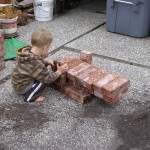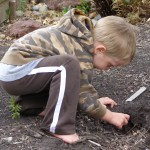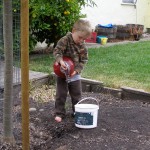I did it! The first video in my Joyous Parenting Video Series is up and ready for you to enjoy! I’m excited to make my next one and hopefully will have it up before all of my travels begin next week.
It’s only 3 minutes long so you can easily find time for it in your busy day.
In this video, I mention lines in the recording. As it turns out, the lines mostly show in the recording phase and not in the viewing phase so you probably will not see many lines. Part of my learning curve.
If you feel others in your network would find this information useful, please share it with people you know and care about. Thanks!
If you want to be among the first to know when I make new videos, be sure to subscribe to my blog by entering your email in the far right column under the social networking links where it says “Subscribe by email.” Or you can use Feedburner.
As you may recall, I am beginning a series of travel adventures next week. I plan to post updates of my travels on Facebook, Twitter, and LinkedIn. So if this sounds like fun, you can sign up to ‘follow me’ from my blog also. This way you can share my adventures with me. That would be fun!
In what ways are you trying to be perfect as a parent? Feel free to share your experience in the comment section.







 Just a little bit about me -- I'm a coach for parents, visionary guide, insightful trainer, and powerful consultant.
Just a little bit about me -- I'm a coach for parents, visionary guide, insightful trainer, and powerful consultant.